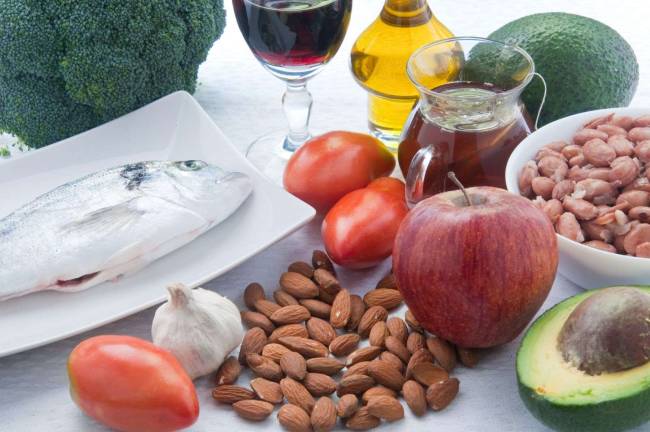11 foods that lower cholesterol

It's easy to eat your way to an alarmingly high cholesterol level. The reverse is true, too — changing what foods you eat can lower your cholesterol and improve the armada of fats floating through your bloodstream.
Doing this requires a two-pronged strategy: Add foods that lower LDL, the harmful cholesterol-carrying particle that contributes to artery-clogging atherosclerosis. At the same time, cut back on foods that boost LDL. Without that step, you are engaging in a holding action instead of a steady — and tasty — victory.
Add these foods to lower LDL cholesterol
Different foods lower cholesterol in various ways. Some deliver soluble fiber, which binds cholesterol and its precursors in the digestive system and drags them out of the body before they get into circulation. Some give you polyunsaturated fats, which directly lower LDL. And some contain plant sterols and stanols, which block the body from absorbing cholesterol.
1. Oats. An easy first step to improving your cholesterol is having a bowl of oatmeal or cold oat-based cereal like Cheerios for breakfast. It gives you 1 to 2 grams of soluble fiber. Add a banana or some strawberries for another half-gram. Current nutrition guidelines recommend getting 20 to 35 grams of fiber a day, with at least 5 to 10 grams coming from soluble fiber. (The average American gets about half that amount.)
2. Barley and other whole grains. Like oats and oat bran, barley and other whole grains can help lower the risk of heart disease, mainly via the soluble fiber they deliver.
3. Beans. Beans are especially rich in soluble fiber. They also take awhile for the body to digest, meaning you feel full for longer after a meal. That's one reason beans are a useful food for folks trying to lose weight. With so many choices — from navy and kidney beans to lentils, garbanzos, black-eyed peas, and beyond — and so many ways to prepare them, beans are a very versatile food.
4. Eggplant and okra. These two low-calorie vegetables are good sources of soluble fiber.
5. Nuts. A bushel of studies shows that eating almonds, walnuts, peanuts, and other nuts is good for the heart. Eating 2 ounces of nuts a day can slightly lower LDL, on the order of 5 percent. Nuts have additional nutrients that protect the heart in other ways.
6. Vegetable oils. Using liquid vegetable oils such as canola, sunflower, safflower, and others in place of butter, lard, or shortening when cooking or at the table helps lower LDL.
7. Apples, grapes, strawberries, citrus fruits. These fruits are rich in pectin, a type of soluble fiber that lowers LDL.
8. Foods fortified with sterols and stanols. Sterols and stanols extracted from plants gum up the body's ability to absorb cholesterol from food. Companies are adding them to foods ranging from margarine and granola bars to orange juice and chocolate. They're also available as supplements. Getting 2 grams of plant sterols or stanols a day can lower LDL cholesterol by about 10 percent.
9. Soy. Eating soybeans and foods made from them, like tofu and soy milk, was once touted as a powerful way to lower cholesterol. Analyses show that the effect is more modest — consuming 25 grams of soy protein a day (10 ounces of tofu or 2 1/2 cups of soy milk) can lower LDL by 5 percent to 6 percent.
10. Fatty fish. Eating fish two or three times a week can lower LDL in two ways: by replacing meat, which has LDL-boosting saturated fats, and by delivering LDL-lowering omega-3 fats. Omega-3s reduce triglycerides in the bloodstream and also protect the heart by helping prevent the onset of abnormal heart rhythms.
11. Fiber supplements. Supplements offer the least appealing way to get soluble fiber. Two teaspoons a day of psyllium, which is found in Metamucil and other bulk-forming laxatives, provide about 4 grams of soluble fiber.
Source: Harvard Medical School: health.harvard.edu.